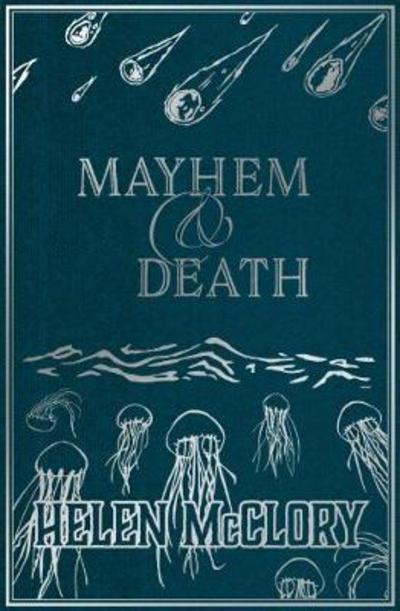It is tipping down on The Writers’ Retreat but out of the murk come the authors, accompanied by Phillipa Cochrane. This is going to be good. Cochrane is head of Reading Communities Programmes at The Scottish Book Trust and a proficient chair. Helen McClory and Camilla Grudova are here to discuss their collections Mayhem and Death (2018) and The Doll’s Alphabet (2017). Both are works of short fiction and have been described as eery, unnerving and unsettling, some might say deliciously so.
They begin by discussing what draws each of them to this kind of story. Cochrane highlights how very visual both of their pieces are and asks when you begin with an image where does character come from? Both talk a little about film and McClory adds that the characters just spring forward but the original images always take precedence. Grudova speaks about her interest in women’s work and unpaid domestic work which informed the structure of the societies in The Doll’s Alphabet, ‘things are not great for men…but are worse for the women and this is the way.’ As a young person Grudova was taught to sew on her Mother’s sewing machine but her brother was never given the same tuition. Sewing machines as symbols of female creativity feature as a trope throughout her stories. Cochrane probes this and asks about women’s work as writers. McClory feels women’s work is seen as accidental or, ‘it just leaks out of them.’ Grudova adds that too often a woman artist is seen as naive, as if they are unconscious of what they are doing. This is in marked opposition to assumptions around male genius.
Speaking specifically about how their work is reviewed Cochrane asks them both about comparisons to Angela Carter and the use of the label magical realism. McClory feels that magical realism is term used to diminish female writers, a way of ‘shaving them down’.
They go on to explore their use of the eerie and uncomfortable, McClory mentions the inescapable pollution cycle and Grudova points to Emily Dickinson’s poem, ‘Tell all the truth but tell it slant.’ Overall through the course of the hour the authors re-iterate how they prefer to avoid labels, categorisation and having their words reduced to one thing or another.
This is a fascinating sharing of opinions, beliefs and reflections on attitudes to short fiction and the creation of a collection. McClory and Grudova are currently collaborating on a work about castrati which will be eagerly anticipated based on the considerable and significant talent on show this afternoon.
